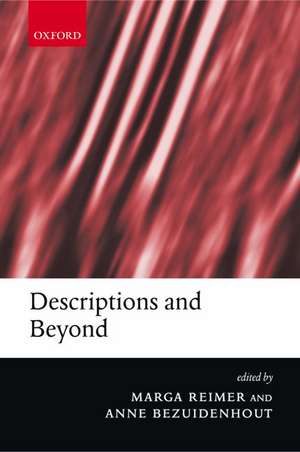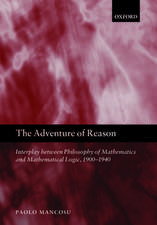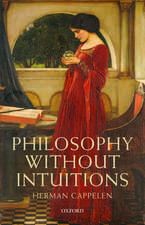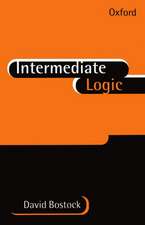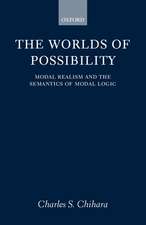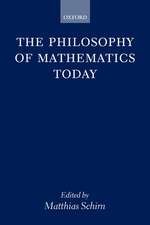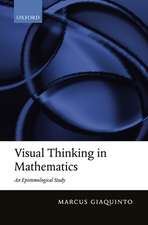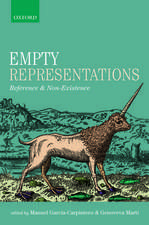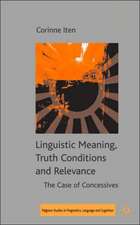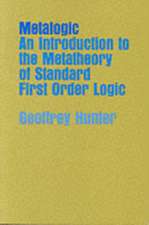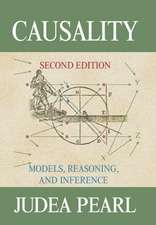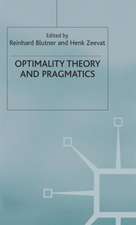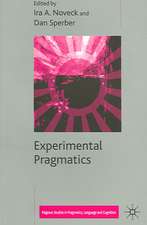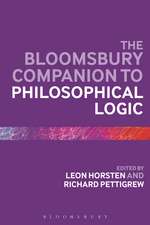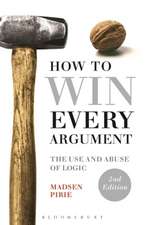Descriptions and Beyond
Editat de Marga Reimer, Anne Bezuidenhouten Limba Engleză Hardback – 22 iul 2004
In 1905, Bertrand Russell published 'On Denoting' in which he proposed and defended a quantificational account of definite descriptions. Forty-five years later, in 'On Referring', Peter Strawson claimed that Russell was mistaken: definite descriptions do not function as quantifiers but (paradigmatically) as referring expressions. Ever since, scores of theorists have attempted to adjudicate this debate. Others have gone beyond the question of the proper analysis of definite descriptions, focusing instead on the complex relations between definites, indefinites, and pronouns. These relations are often examined with attention to the phenomena of scope and anaphora. This collection assembles nineteen new papers on definite descriptions and related topics. The contributors include both philosophers and linguists, many of whom have been active participants in the various debates concerning descriptions. The volume contains a brief general introduction and is divided into six sections, each of which is accompanied by a detailed introduction of its own. Several of the sections concern issues associated with the Russell/Strawson debate. These include the sections on incomplete descriptions, the referential/attributive distinction, and presupposition and truth value gaps. There is also a section on the representation of definites and indefinites in semantic theory, containing papers that reject certain core assumptions of the Russellian paradigm. Linguists interested in definites have traditionally been concerned with how such expressions interact with other expressions, including pronouns and indefinites. They have explored, and continue to explore, these interactions through the complex phenomena of scope and anaphora. In the section dealing with anaphoric pronouns and descriptions, indefinites and dynamic syntax/semantics, five linguists propose and defend their views on these and related issues. Finally, there is a section that concerns the relation between proper names and descriptions and, more particularly, the idea that some names, those introduced into the language by description, are semantically equivalent to definite descriptions.
| Toate formatele și edițiile | Preț | Express |
|---|---|---|
| Paperback (1) | 457.73 lei 31-37 zile | |
| OUP OXFORD – 22 iul 2004 | 457.73 lei 31-37 zile | |
| Hardback (1) | 407.05 lei 31-37 zile | |
| OUP OXFORD – 22 iul 2004 | 407.05 lei 31-37 zile |
Preț: 407.05 lei
Preț vechi: 581.11 lei
-30% Nou
Puncte Express: 611
Preț estimativ în valută:
77.90€ • 84.59$ • 65.43£
77.90€ • 84.59$ • 65.43£
Carte tipărită la comandă
Livrare economică 11-17 aprilie
Preluare comenzi: 021 569.72.76
Specificații
ISBN-13: 9780199270514
ISBN-10: 0199270511
Pagini: 1
Ilustrații: 1
Dimensiuni: 165 x 243 x 42 mm
Greutate: 1.14 kg
Editura: OUP OXFORD
Colecția OUP Oxford
Locul publicării:Oxford, United Kingdom
ISBN-10: 0199270511
Pagini: 1
Ilustrații: 1
Dimensiuni: 165 x 243 x 42 mm
Greutate: 1.14 kg
Editura: OUP OXFORD
Colecția OUP Oxford
Locul publicării:Oxford, United Kingdom
Recenzii
The volume is well-conceptualized and well-edited ... an excellent collection which gives a real sense of how semantics is done these days.
It is now a full century since the publication of "On Denoting", the essay in which Bertrand Russell introduced the theory of descriptions. The current volume, released just in time for the centenary, shows unequivocally that Russell's analysis remains central to philosophy of language and linguistic semantics: the contributors are all major figures, the quality of the essays is quite high overall, and each essay addresses areas of current research.
While many of the nineteen chapters explore various consequences of Russell's approach, developing it in novel ways and defending it against various criticisms (some new, some of long standing), others explore alternative treatments. In addition, some essays consider the application of Russell's theory to phenomena Russell himself never addressed -- for example, so-called pronominal descriptions and anaphoric pronouns. . . . the volume is well organized, the material is often exciting, and the editors have done an impressive job, in their section introductions, of summarizing the main points of the essays.
. . anyone interested in definite and indefinite descriptions, reference, quantification, pragmatics, anaphora, dynamic binding and descriptive names will want to have this book and devour as much of it as they can. If you're a philosopher of language, or working in linguistic semantics, or just someone who wants to get up to speed in these areas, that should mean you.
It is now a full century since the publication of "On Denoting", the essay in which Bertrand Russell introduced the theory of descriptions. The current volume, released just in time for the centenary, shows unequivocally that Russell's analysis remains central to philosophy of language and linguistic semantics: the contributors are all major figures, the quality of the essays is quite high overall, and each essay addresses areas of current research.
While many of the nineteen chapters explore various consequences of Russell's approach, developing it in novel ways and defending it against various criticisms (some new, some of long standing), others explore alternative treatments. In addition, some essays consider the application of Russell's theory to phenomena Russell himself never addressed -- for example, so-called pronominal descriptions and anaphoric pronouns. . . . the volume is well organized, the material is often exciting, and the editors have done an impressive job, in their section introductions, of summarizing the main points of the essays.
. . anyone interested in definite and indefinite descriptions, reference, quantification, pragmatics, anaphora, dynamic binding and descriptive names will want to have this book and devour as much of it as they can. If you're a philosopher of language, or working in linguistic semantics, or just someone who wants to get up to speed in these areas, that should mean you.
